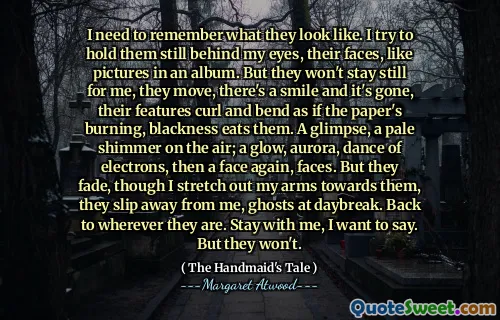I admired my mother in some ways, although things between us were never easy. She expected too much from me, I felt. She expected me to vindicate her life for her, and the choices she'd made. I didn't want to live my life on her terms. I didn't want to be the model offspring, the incarnation of her ideas. We used to fight about that. I am not your justification for existence, I said to her once.
The narrator expresses a complicated relationship with her mother, recognizing admiration for her while also feeling burdened by high expectations. The mother desires her daughter to fulfill the dreams and choices she made, which creates tension between them. The narrator feels the pressure to justify her mother's life through her own achievements, leading to conflicts in their perspectives.
This struggle for independence becomes a central theme, as the narrator resists becoming the embodiment of her mother's aspirations. She asserts her own identity, emphasizing that she is not responsible for her mother's existence or choices, highlighting the emotional strain and desire for autonomy in their relationship.






